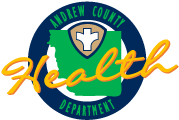Raising a healthy family comes with a lot of responsibilities, and making sure children have access to nutritious food is one of the most important. For many families in Andrew County, the Women, Infants, and Children (WIC) program provides critical support during some of the earliest and most important stages of life.
The WIC program is designed to help eligible families access healthy foods, nutrition education, breastfeeding support, and referrals to healthcare and other community services. At the Andrew County Health Department in Savannah, Missouri, the WIC team works closely with families to provide resources that promote better health for mothers, babies, and young children.
This blog is intended for educational purposes only and should not be considered medical advice. Families are encouraged to speak directly with their healthcare providers or WIC counselors to understand how the program can best support their individual needs.
Understanding What the WIC Program Offers
The WIC program serves pregnant women, postpartum women, infants, and children up to the age of five. It is based on the idea that giving families access to healthy food and support services during critical growth periods can have a lifelong impact on health and well-being.
In Andrew County, the WIC program offers support through:
- Access to healthy foods like fruits, vegetables, milk, cheese, whole grains, and infant formula for eligible participants
- Nutrition education focused on helping families make balanced food choices, meal plan on a budget, and support overall wellness
- Breastfeeding support, including access to breastfeeding counselors, educational materials, and resources like breast pump rentals or donations
- Referrals to healthcare providers, immunization services, and other public health programs that may benefit families
The services provided through the WIC program are aimed at strengthening the foundation for healthy growth and development but are not intended to replace regular medical care. Families participating in WIC should continue to attend regular appointments with pediatricians, obstetricians, and other healthcare providers.
Who is Eligible for WIC in Andrew County
Eligibility for the WIC program is determined based on several factors, including residency, income, and nutritional risk. Applicants generally must:
- Live in Missouri
- Meet specific income guidelines
- Be determined by a health professional to have a nutritional risk factor, such as low birth weight, poor growth patterns, or conditions like anemia
The team at Andrew County Health Department helps guide families through the application and certification steps. Participation in WIC is confidential, and staff are available to answer questions and provide support at every stage.
Why Nutrition Matters During Pregnancy and Early Childhood
Nutrition plays an essential role in every stage of life, but it is especially critical during pregnancy, infancy, and early childhood. During these periods, bodies are growing and developing rapidly, and they require a wide range of nutrients to support healthy bones, organs, and brain development.
When mothers have access to nutritious food during pregnancy, it can help support a healthier pregnancy and potentially lead to better outcomes for both mother and baby. Similarly, ensuring that infants and young children have consistent access to fruits, vegetables, protein, dairy, and whole grains can set the stage for healthier habits later in life.
The WIC program is structured around this understanding. By providing supplemental foods and nutrition education, WIC aims to make it easier for families to build healthy habits from the very beginning.
The Role of Breastfeeding Support in the WIC Program
Breastfeeding can offer significant health benefits for both babies and mothers. However, breastfeeding is not always easy, especially for first-time mothers who may have questions or face challenges early on.
That is why breastfeeding support is an important part of the WIC program in Andrew County. Mothers participating in WIC have access to:
- Breastfeeding counselors who provide education and encouragement
- Informational resources to help navigate early breastfeeding challenges
- Breast pumps and other breastfeeding equipment as needed
Mothers who are considering breastfeeding or who are looking for additional support are encouraged to reach out to the Andrew County Health Department’s WIC office. Whether a mother chooses to breastfeed, formula feed, or do a combination of both, WIC staff are there to support her decision and provide helpful resources along the way.
Nutrition Education Through WIC
One of the most valuable parts of participating in the WIC program is access to practical nutrition education. Families participating in WIC learn about:
- Choosing affordable and nutritious foods
- Reading food labels to understand ingredients and serving sizes
- Meal planning for busy families
- Incorporating fruits and vegetables into everyday meals
- The importance of portion control and balanced eating
These lessons are designed to be easy to understand and apply in everyday life. Counselors work with families to set realistic goals that fit each household’s needs and schedules.
WIC Benefits in Everyday Life
For many families in Savannah and throughout Andrew County, the WIC program is a reliable resource that helps stretch the household food budget while ensuring that children have access to important nutrients.
Having healthy foods readily available at home can reduce stress around mealtime, encourage better eating habits, and promote positive family routines. These benefits can ripple outward, supporting academic readiness, emotional health, and overall well-being.
It is important to remember, however, that participating in WIC is just one part of a larger picture of family health. WIC works best when it is combined with regular healthcare visits, community support, and attention to all aspects of physical, emotional, and mental wellness.
Referrals and Community Connections
Another important way WIC supports families is by connecting them to additional resources in Andrew County. During WIC visits, staff may provide referrals for:
- Pediatric care
- Prenatal and postpartum healthcare
- Immunization services
- Oral health programs
- Early childhood education programs
- Mental health support services
This network of support can help families address a wide range of needs beyond nutrition alone.
A Focus on Respect and Support
Participating in a public health program can sometimes feel overwhelming, especially for families navigating financial or personal challenges. At Andrew County Health Department, the WIC team is committed to creating a welcoming environment where every family feels respected and supported.
WIC is designed to help, not judge. Staff work with families from all backgrounds and treat every participant with dignity. Whether you are a first-time parent, a grandparent raising grandchildren, or someone trying to balance work, school, and family responsibilities, WIC counselors are here to listen and offer practical assistance.
How to Apply for WIC in Andrew County
Families interested in applying for WIC benefits in Savannah or anywhere in Andrew County can contact the Andrew County Health Department to get started. Staff members can help with:
- Explaining eligibility requirements
- Assisting with application paperwork
- Scheduling certification appointments
- Answering questions about program benefits and services
By reaching out to the local WIC office, families can take the first step toward accessing valuable nutrition support and resources.
Final Thoughts
Supporting the health of young children and families starts with access to good nutrition. The WIC program plays a vital role in helping families in Andrew County get the resources they need during critical growth periods.
The Andrew County Health Department is proud to offer WIC program services for local families. However, it is important to remember that WIC participation is just one piece of the health puzzle. For medical advice, diagnosis, or treatment, always consult with a licensed healthcare provider.
For more information about WIC benefits in Savannah MO, or to schedule an appointment, contact the Andrew County Health Department today. We are here to support your family’s journey toward better health.




